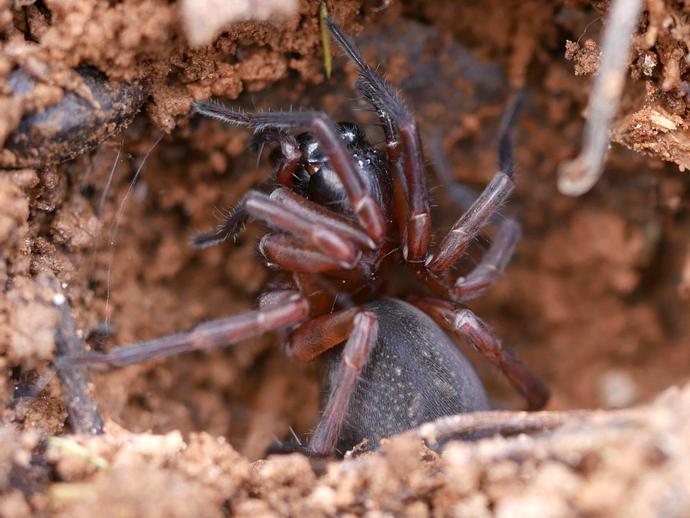April 19, 2021
It's time for today's edition of #BenInNature presented by our friends at Carter Bank & Trust!
My apologies to the arachnophobes out there, but spiders are pretty fascinating! This spider belongs to the genus Wadotes, which contains 11 different species, all of them localized to North America.
Wadotes are funnel weaver spiders. Funnel weavers build a horizontal web in the basic shape of a funnel and hide in the narrowest part. Their webs are very dense, and while they're not sticky, they contain tiny strands of silk that can easily entangle any insect unfortunate enough to land on the web. When the insect is struggling to escape, the funnel weaver spider senses the vibrations and rushes out to bite its prey and then drag it back into the funnel.
Of course, funnel weavers also react to a strand of grass tickling their web, as anyone who was once a bored child can attest.
Funnel weavers are among the fastest spiders in the world, but don't worry; the only species that is even possibly dangerous to humans is Eratigena agrestis, the hobo spider, which is native to Europe and Central Asia but has been introduced in the Pacific Northwest. While there have been claims in the past that hobo spider bites can be harmful to humans, new evidence suggests that the issue has likely been overblown.
ABOUT #BenInNature
Social distancing can be difficult, but it presents a great opportunity to become reacquainted with nature. In this series of posts, Administrator of Science Ben Williams ventures outdoors to record a snapshot of the unique sights that can be found in the natural world. New updates are posted Monday - Friday, with previous posts highlighted on the weekends. This series of posts is made possible thanks to the support of VMNH Corporate Partner Carter Bank & Trust (www.cbtcares.com)
NATURE PHOTO IDENTIFICATIONS
If you discover something in nature that you would like help identifying, be sure to message us right here on Facebook with a picture (please include location and date of picture) and we'll have our experts help you identify it!

 Hours & Admissions
Hours & Admissions Directions
Directions

